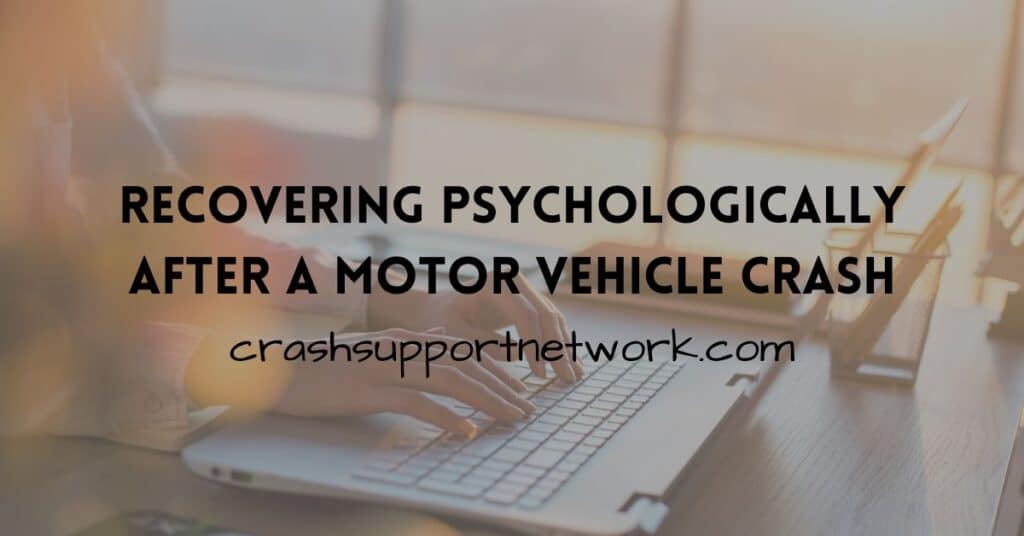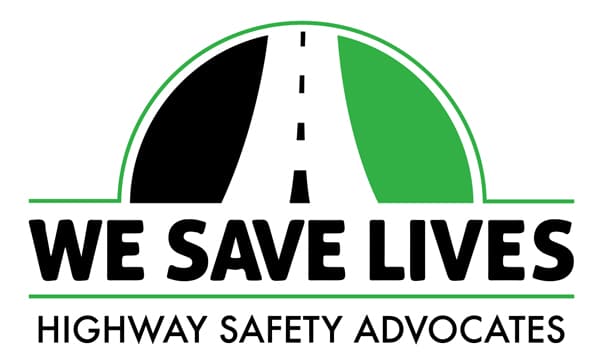
Recovering psychologically after surviving a motor vehicle crash is common. When you have been involved in a serious auto collision, you may often find that recovering psychologically from the trauma is every bit as difficult, or even more so, than getting over the physical injuries caused by the collision. You may discover that even if you feel relatively unharmed immediately after the collision, you can start to experience emotional difficulties days, months or even years after the collision. Emotional recovery is an important part of the healing process after an auto collision. What makes it even more difficult is that family and friends may find it difficult to understand what you are going through.
Psychological Trauma Triggers
Psychological trauma can and does occur when someone survives an extraordinarily frightening event. Even if you are involved in an auto collision and are physically undamaged, many crash survivors still feel emotionally shattered, shell shocked and devastated.
How Do Symptoms Present Themselves?
After a traumatic collision, survivors can experience a vast array of feelings. Symptoms may show themselves within hours of a collision, or they might not appear for months. Some of us may feel:
- Shock, denial and disbelief.
- Anger and irritability.
- Survivors Guilt leading to further feelings of shame or even self-blame.
- Sadness or extreme hopelessness.
- Overwhelming anxiety, worries and fear.
- Social withdrawal which leads to isolation.
As well as the obvious difficulties these symptoms can present, they can also drastically affect our ability to work, or to communicate with friends, family and loved ones.
Survivors of a motor vehicle crash can also experience:
- Confusion, difficulty in concentrating on even minor tasks, or forgetfulness.
- Terrifying flashbacks or intrusive memories.
- Insomnia or terrifying nightmares.
- Extreme fatigue or unusually low energy levels.
- Spells of uncontrollable crying.
- Becoming overly vigilant and being very easily startled or frightened.
How Can Psychological or Emotional Trauma Be Treated?
Recovering psychologically after an auto collision takes time and it’s not as easy as some of your friends or family may think when they tell you to “shake it off,” or to “just get over it.” Denying your emotional trauma will not help your recovery and you could be experiencing post-traumatic stress disorder (PTSD) which includes flashbacks.
Some of the ways you can help your emotional recovery include:
- Get the rest you need and take your time recovering. Your top priority should be taking care of you.
- Talk about it! Tell your family & friends when and why you are feeling emotional.
- Seek out a support group in person or an Online Support Group.
- Stay active if you are physically able to do so.
- Seek professional help.
Being involved in a motor vehicle crash can be traumatic and can literally change your entire life in an instant. Surviving a motor vehicle crash could have a negative impact on your finances, your career and your family life but it’s also important to realize that emotional trauma can be equally devastating. Many crash survivors try to manage their emotional trauma on their own as they feel they should be able to get over a collision easily particularly if their physical injuries have cleared up.
A few months after surviving a motor vehicle crash, I chose to seek professional help as I was experiencing flashbacks, terrifying nightmares and terrible anxiety. My psychologist specialized in Post-Traumatic Stress Disorder (PTSD) and I had found my “safe space” which I wrote about in my blog entitled Visiting Your Crash Site. My first psychologist has since retired and when I find myself using his coping mechanisms to get me through a difficult moment, I wonder if he is aware how much of a difference he made to my life as a survivor of a crash.
If you are a crash survivor, you need to understand that you are not alone. Emotional trauma from a motor vehicle crash is real and it is nothing to be embarrassed about. Please do not suffer in silence and get the help and support that you need from family, friends or from experienced professionals.
S. Dawne McKay is a survivor of a horrific crash that changed her life forever. Dawne shares her personal journey as a Crash Survivor Blogger and also collaborates with crash survivors as Guest Bloggers allowing them an opportunity to share their stories. Dawne is also the author of the book, “Talk Crash to Me – What to Expect After Surviving a Collision and How to Manage Your Recovery” which is available for purchase on Amazon.
The Crash Support Network is a unique one-of-a-kind website consisting of an online support group, a crash survivor blog, a quarterly newsletter, “Sharing Our Recovery” as well as highly informative articles. Our website is based on relationship-building and puts the needs of survivors first by creating a helpful resource for victims and survivors of motor vehicle crashes.





